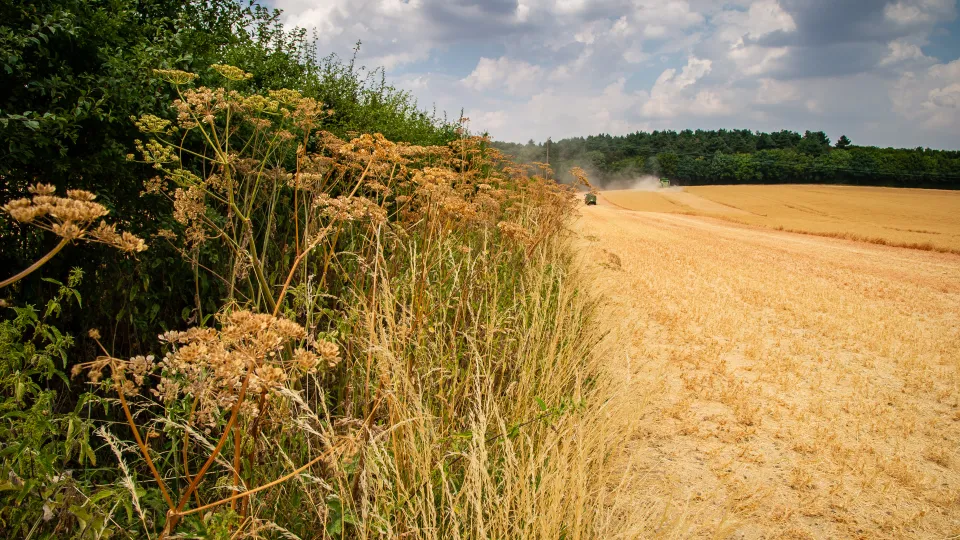
Farmland
Farmland can conjure up rural images of brown hares zig-zagging across fields, chattering flocks of finches and yellowhammers singing from thick, bushy hedges and field margins studded with wildflowers.

Farmland can conjure up rural images of brown hares zig-zagging across fields, chattering flocks of finches and yellowhammers singing from thick, bushy hedges and field margins studded with wildflowers.

The common rosefinch is a rare visitor to the UK, usually passing through in autumn.
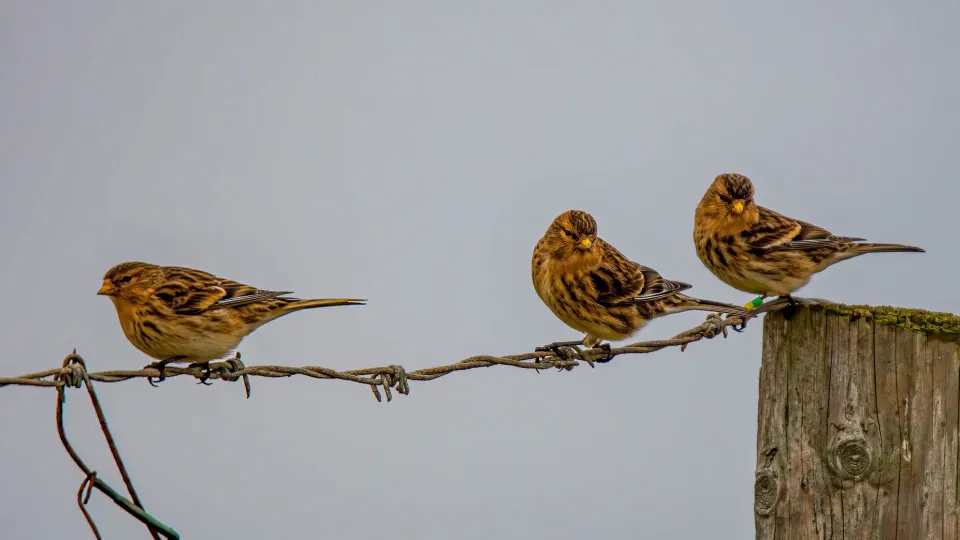
This small finch nests on moorlands and coastal crofts, spending the winter on the coast. The UK population has declined dramatically.

These winter visitors are close relatives of the chaffinch and can often be found in the same flocks, where their white rump and nasal calls give them away.
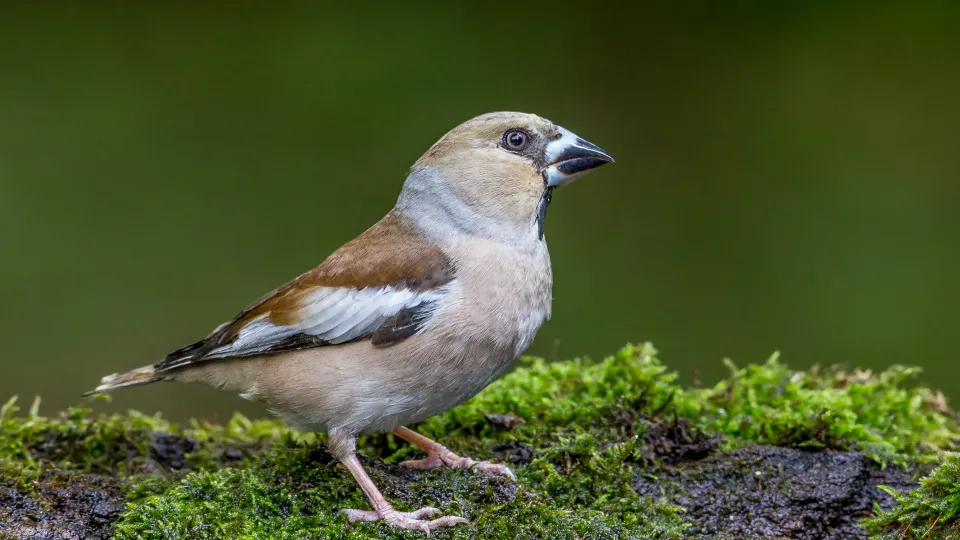
The hawfinch is the UK's largest finch, with an enormous bill powerful enough to crush a cherry stone. Despite their size, they are typically elusive, especially during the summer nesting season.

Like many of our farmland birds, the corn bunting has declined in number in recent years. Spot this streaky brown, thick-billed bird singing from a wire or post - it sounds just like a set of jangling keys!
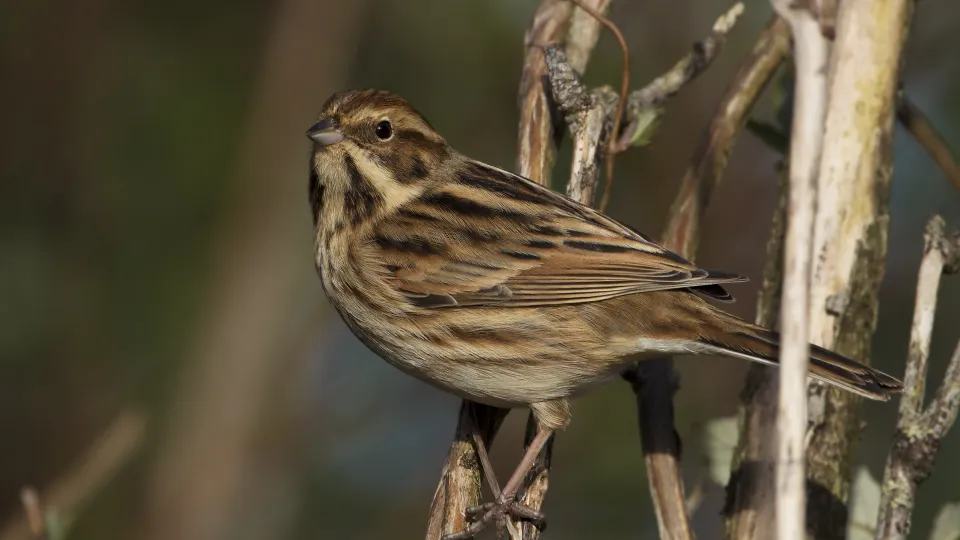
A streaky brown bird, the reed bunting can be found in wetlands, reedbeds and on farmland across the UK. Males sport black heads and a white 'moustache'.
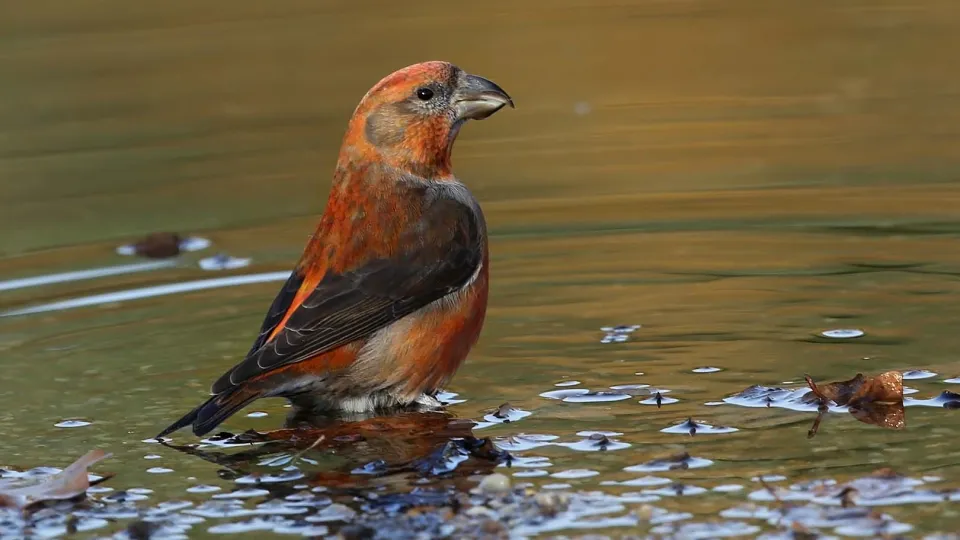
As it names suggests, the common crossbill has a large bill that is crossed at the tip - perfect for picking the seeds out of pine cones. Look for it in conifer woodlands, mainly in the north and south.
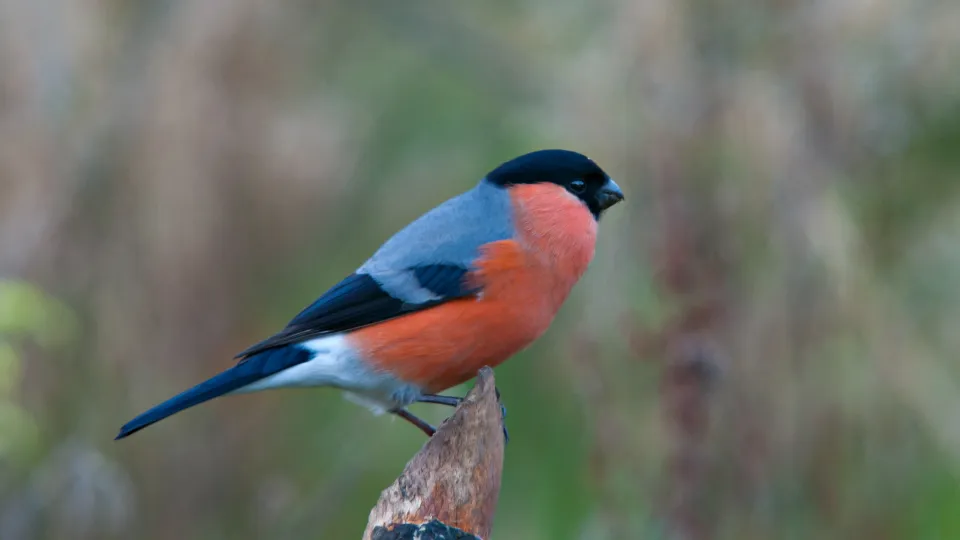
The rose-red breast, large black cap and thick bill make the bullfinch easy to identify. A plump-looking bird of woodlands, hedgerows and orchards, it also frequents gardens.
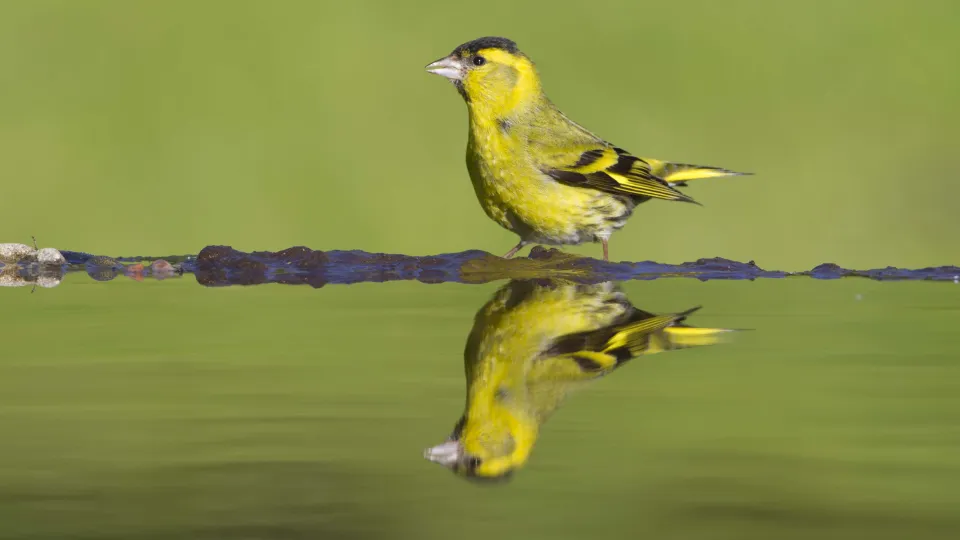
An attractive, green-and-yellow bird, the siskin regularly visits birdtables and feeders in gardens. Look for the bright yellow barring on its black wings, and the black crown of the males.